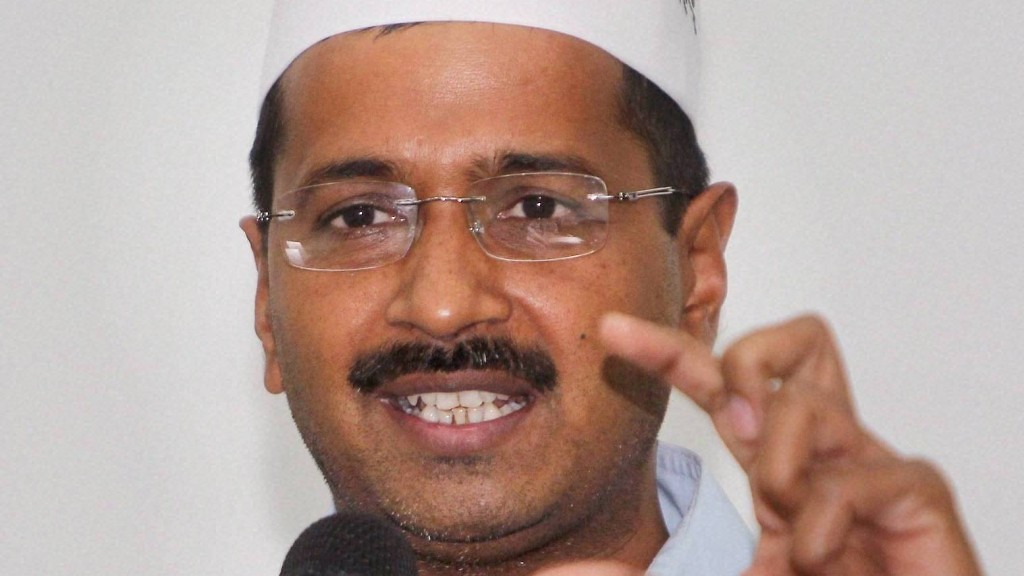Imagine Bihar Chief Minister Nitish Kumar, or even his counterpart of the much smaller Uttarakhand Harish Rawat, saying that Prime Minister Narendra Modi may get him eliminated. There would have been a political storm in the country; even the international media would have taken notice of the stupendous allegation. But such is the reputation of Delhi Chief Minister Arvind Kejriwal that, after flashing the news on front pages and briefly discussing it on news channels, not many in the media, or elsewhere, have bothered to take the charge seriously. For sensationalism is like the antibiotic medicine—excess leads to inefficacy.
The statesman, they say, thinks about the next generation, the politician about the next election. To which one may add, Kejriwal thinks about the next day’s headlines. To be fair to the Delhi Chief Minister, it must be said that he is not alone in seeking publicity all the time. Finance Minister Arun Shourie too, as Arun Shourie said, confuses managing the economy with managing headlines. To some extent, Modi is also lays considerable emphasis on his own public projection. Kejriwal, however, stands out not only for his lust for media coverage but also his excessive reliance on sensationalism.
But sensationalism peaked some time ago when Kejriwal called the Prime Minister “a coward” and “a psychopath.” If Kejriwal thought of scaling a new peak with his ‘PM wants to kill me’ charge, of setting the Yamuna on fire, he has failed pathetically.
This is not to say that he has no case, for the way in which his MLAs and confidants are being targeted is indeed curious. Never before in India have we have come across a series of cases against the lawmakers of one political party in quick succession—not at the Centre, not in any other state. This is despite the fact that other political parties also have a number of members of criminal backgrounds.
In a Youtube video, Kejriwal made lurid charges against the Modi regime: “You must have seen the attempts to crush the AAP. Ten MLAs have been arrested, IT raid has been conducted on one, and attempts are being made to disqualify 21 MLAs through false allegations of office-of-profit… This is like a cycle of oppression. I was wondering why this is happening. People question as to why I blame Modiji. I want to know who the mastermind behind the raids by CBI, IT, etc., is. Someone has to be the mastermind behind them. Who is the mastermind?”
Then he goes on to point fingers at the Prime Minister’s Office and Bharatiya Janata Party president Amit Shah. “Amit Shah, Modiji, PMO. All of them are together. Shah is doing it on Modiji’s prodding but it is happening from one source. Insiders say that Modiji is extremely angry with us and he is not thinking logically about it. Because daily arrests make no logic. Especially when all of them get bail within days and they could not prove a thing.”
Much of what Kejriwal has said is not without substance, but apparently his penchant for hyperbole and cheap publicity made him go overboard. I wonder if he has realized his own folly. Does his decision to go for a 10-day vipassana (meditation) course in Nagpur indicate anything?
It won’t be his first time, though, with meditation; the 47-year-old Delhi Chief Minister has gone on twice on this course. During his break at Nagpur, from Saturday, he will be cut off the media.
It would be good for his own politics, as also for others, if Kejriwal sought to know not only the ultimate reality, which is the purpose of any meditation, but also his own soul, his own words and deeds, his own behavior. With a little honesty, he would discover several flaws in himself, the biggest of them being the propensity to hurl (often unsubstantiated) charges against rivals, the proclivity to slander and malign opponents, and the predilection for the scandalous and the melodramatic—the latest instance being his salvo against the Prime Minister.
He should also ponder over why the BJP is not being vindictive against the Congress, which is the saffron party’s main rival and whose removal from the political arena is its professed aim—Congress-mukt bharat. With a little application of the mind (after all, Kejriwal is an IITian), he would quickly find the reason: the two biggest political parties, despite frequent acrimony, don’t stoop to the level the Aam Aadmi Party stoops to at the drop of a hat.
In short, Kejriwal should meditate to find ways how to orient his politics around reason and civility. He can find ways—if he wants to.
